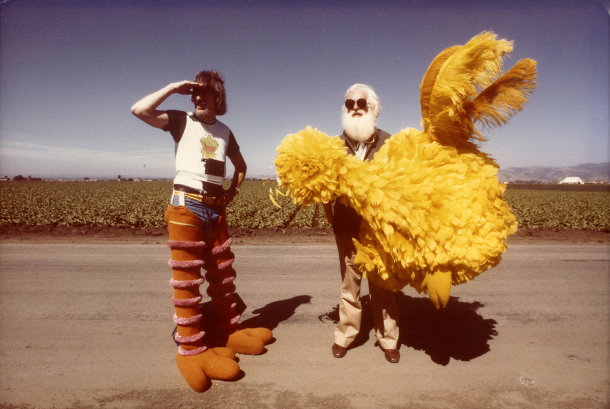Life Itself (2014)
Cast: Roger Ebert, Chaz Ebert, Gene Siskel
Director: Steve James
Country: USA
Genre: Documentary
Official Site: Here
Editor’s Notes: Life Itself is now open in limited theatrical release.
When Steve James (Hoop Dreams) started the cameras on film critic Roger Ebert, the central subject of his latest documentary, Life Itself (a partial adaptation of Ebert’s 2011 memoir of the same name), he didn’t know that Ebert would only live for another five months. When James met Ebert, Ebert was in unfailingly good spirits, but his health had taken another setback, sending him back to the hospital and the rehab that had become part of Ebert’s life for more than half a decade after he was diagnosed with cancer. Chaz, Ebert’s wife of more than twenty years, was never far away, a testament to the loving, affectionate bond she and Ebert shared. Life Itself is no less affectionate or poignant toward its subject, but to James’ considerable credit, it never descends to the level of hagiography, giving the cinephiles, critics, and moviegoers who made Ebert a part of their lives for four decades an honest, but no less affecting, portrayal of the populist film critic.
… it never descends to the level of hagiography, giving the cinephiles, critics, and moviegoers who made Ebert a part of their lives for four decades an honest, but no less affecting, portrayal of the populist film critic.
James segues between the last five months of Ebert’s life and Ebert’s past, beginning with his passion for writing and newspapers, including a newspaper Ebert created and distributed himself, running the school newspaper at the University of Illinois where he attended college, and his first (and most long-running) stint at the Chicago Sun-Times initially as a general reporter and five months later, as the newspaper’s film critic (then considered a non-prestigious position). James interviewed Ebert’s contemporaries in the Chicago newspaper business and several, ley friends. A portrait of a complex, hard-drinking, hard-working writer emerges from these interviews. Ebert apparently had horrible taste in women and later, alcohol abuse that eventually led to Ebert to stop drinking altogether (in 1979) and join AA (where years later, he met Chazz). Winning the Pulitzer Prize (a rarity for film criticism) in 1975 seemed to fuel some of Ebert’s excesses.
Ebert, however, didn’t become the gateway critic for moviegoers and cinephiles until he joined Gene Siskel, his cross-town rival from the Chicago Tribune, for a weekly series on public television, Sneak Previews. James doesn’t shy away from exploring their fraught, complex relationship. Both men where equipped with big brains and the egos to match, but they were also smart enough to recognize that their individual success depended on their collective efforts. As the first (and only) show of its kind on public or network television, they essentially cornered the market on film criticism (at least in video form), eventually taking their show into lucrative syndication, renaming it Siskel & Ebert at the Movies in the process (Siskel’s name went first as a result of a coin flip). Moviegoers tuned in for their lively discussion and almost as importantly, their thumbs up or thumbs down on that week’s movies.
Despite behind-the-scene tensions – a few captured in outtakes to their intros – Siskel and Ebert remained together until Siskel passed away from a brain tumor at the age of 53. Ebert soldiered on with guest film critics, but the show was never the same. By then, of course, the ascendency of the Internet and the resulting democratization of film criticism had begun to alter the relationship between critics, readers, and filmmakers. It wasn’t until Ebert lost his voice, along with his ability to eat or drink, that he shifted his attention practically full-time to the Internet, starting his own blog in 2008 and expanding his writing to culture and politics (the latter much to the chagrin of his more conservative readers). By his admission as well as other writers and critics, Ebert did some of the finest, most thoughtful, and provocative writing of his career over the last half-decade of his life.
While all acknowledge Ebert’s contributions to film criticism, most importantly his popularization of film criticism, James gives them a moment, however briefly, to bring up their issues with Ebert’s work …
James’ interviews also include several leading critics, including A.O. Scott (The New York Times), Richard Corliss (Time Magazine), and Jonathan Rosenbaum (Chicago Reader). While all acknowledge Ebert’s contributions to film criticism, most importantly his popularization of film criticism, James gives them a moment, however briefly, to bring up their issues with Ebert’s work, principally Ebert’s TV work as critiqued by Corliss in Film Comment (the journal’s editors gave Ebert a chance to respond). Ebert’s at-times close friendships with filmmakers also comes under scrutiny. James interviews Martin Scorsese (a producer on the documentary) who credits Ebert and Siskel with helping him during a low period in his professional and personal life. No doubt that’s a risk every critic or reporter eventually must face, but Ebert also deserves credit – as James repeatedly acknowledges – for championing up-and-coming, non-mainstream filmmakers from his relatively powerful position as the country’s go-to critic.
Life Itself eventually segues back to Ebert’s final weeks and days, including the last two e-mail messages James received from Ebert before he passed away. It’s harrowing, often difficult to watch. It almost feels voyeuristic, but it’s clear that both Roger and Chaz didn’t want James to cut away (or look away) as Ebert’s final days approached. Ultimately, Life Itself becomes more than just a portrait of a film critic, however important he may or may not have been to his profession. It becomes a moving portrait of a family experiencing the most common yet rarely filmed or acknowledged event in our lives: the passing of a loved one. And if Life Itself makes anything clear, it’s that Ebert was indeed loved by those closest to him (his family and friends) and those farthest from him (his longtime readers and fans).
Ultimately, Life Itself becomes more than just a portrait of a film critic, however important he may or may not have been to his profession. It becomes a moving portrait of a family experiencing the most common yet rarely filmed or acknowledged event in our lives: the passing of a loved one.




